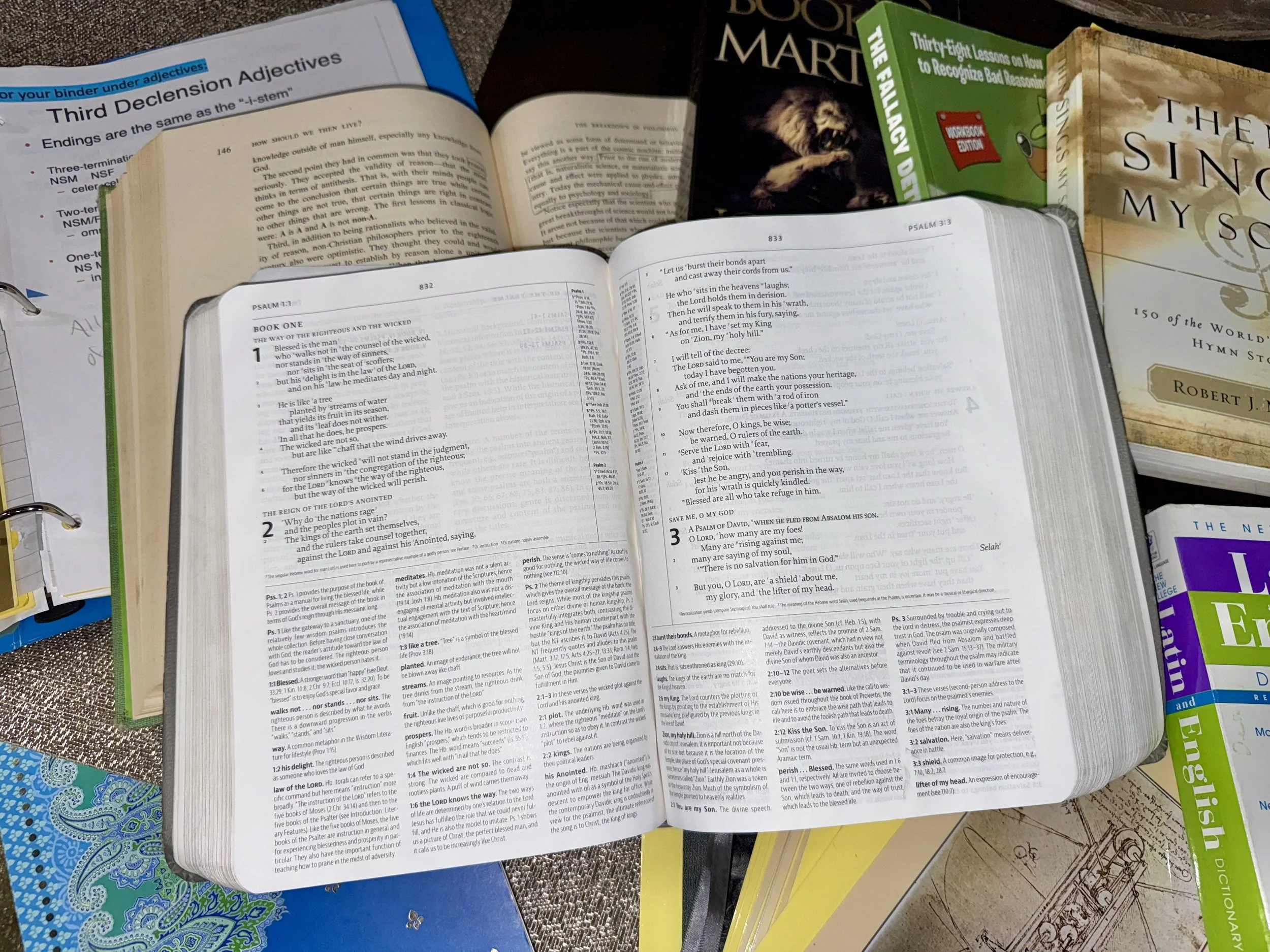5 Simple Ways to Keep Discipleship Central When Your Homeschool Day Gets Busy
“BBB” (Bible Before Breakfast) keeps us all accountable to keeping first things first.
Homeschooling middle schoolers often feels like a juggling act. One child needs help with fractions, another can’t find their science notebook, and someone else is melting down because the Wi-Fi isn’t working. In the middle of the chaos, the heart of our homeschool—discipling our kids to follow Christ—can feel like it slips through the cracks.
But here’s the truth: discipleship doesn’t require a perfectly executed “Bible class.” It grows in the ordinary, woven into conversations, habits, and choices. Here are five simple ways to keep discipleship central, even on the busiest days.
1. Begin With Scripture, Even if It’s Short
Middle schoolers are old enough to grasp deeper truths, but they’re also distracted and easily pulled into their own worlds. Starting your day with Scripture—even just a few verses—anchors everyone in God’s Word before the to-do list takes over.
Require “BBB” (Bible Before Breakfast) where each child reads a set amount of verses before eating.
Read a Psalm aloud during breakfast.
Download the “Bible Memory” app and require each child to use it daily.
Choose one memory verse for the week and repeat it first thing each morning.
It doesn’t need to be long to be powerful. God’s Word never returns void (Isaiah 55:11).
2. Turn Interruptions Into Teachable Moments
When a math lesson ends in frustration or siblings clash during group work, it’s tempting to push through just to “get it done.” But those moments are opportunities for discipleship.
Pause and ask a child to pray for the family, as everyone feels the tension rising.
Ask: “How is your heart toward ________ right now?”
Lay on the floor, put your feet up (against a wall or couch) and deep breathe with your children beside you.
Middle schoolers notice how you respond under pressure. Your calm reliance on God often teaches more than a lecture.
3. Connect Chores With Service
One of the easiest ways to disciple kids is by reframing daily tasks. Instead of “just cleaning,” remind them that serving the family reflects Christ’s servant heart.
Washing dishes → showing gratitude for God’s provision.
Helping siblings → practicing love and humility.
Delivering laundry → caring for others’ needs before your own.
When kids complain (and they will), make sure a few of these verses are memorized, so you can pull them out at any moment: Philippians 2:14, I Thessalonians 5:16-18, Philippians 4:4, Romans 12:12, Psalm 118:24, Colossians 3:17, Ephesians 5:20.
4. Use Car Rides and Walks for Conversation
Homeschooling middle schoolers often means shuttling them to sports, youth group, or co-op. Those little windows of time are golden for discipleship. *We do NOT allow screens in the car so we can capitalize on this time.
Ask questions like:
“What’s your high and low from today?”
“What people have been a blessing to you / hard for you, and are you praying for them?”
“How can I be praying for you these days?”
Some of the deepest conversations happen when eye contact isn’t required—side by side in the car or on a walk.
5. End With Gratitude
Even if the day felt scattered and incomplete, closing with gratitude redirects everyone’s focus.
Share one thing you’re thankful for at dinner or bedtime.
Play worship music throughout the house while getting ready for bed.
Pray together, thanking God for specific wins and trusting Him with struggles (big or small).
Teach your kids that discipleship includes recognizing His faithfulness in the everyday.
Gratitude transforms stress into worship and keeps your family’s eyes fixed on the bigger picture.
Final Encouragement
Homeschool days will never be perfect. But discipleship doesn’t require perfection—it requires presence. By intentionally including Scripture, prayer, and Christ-centered perspective into the natural flow of your day, you’re showing your middle schoolers that faith isn’t a subject we “do,” it’s the way we live.

